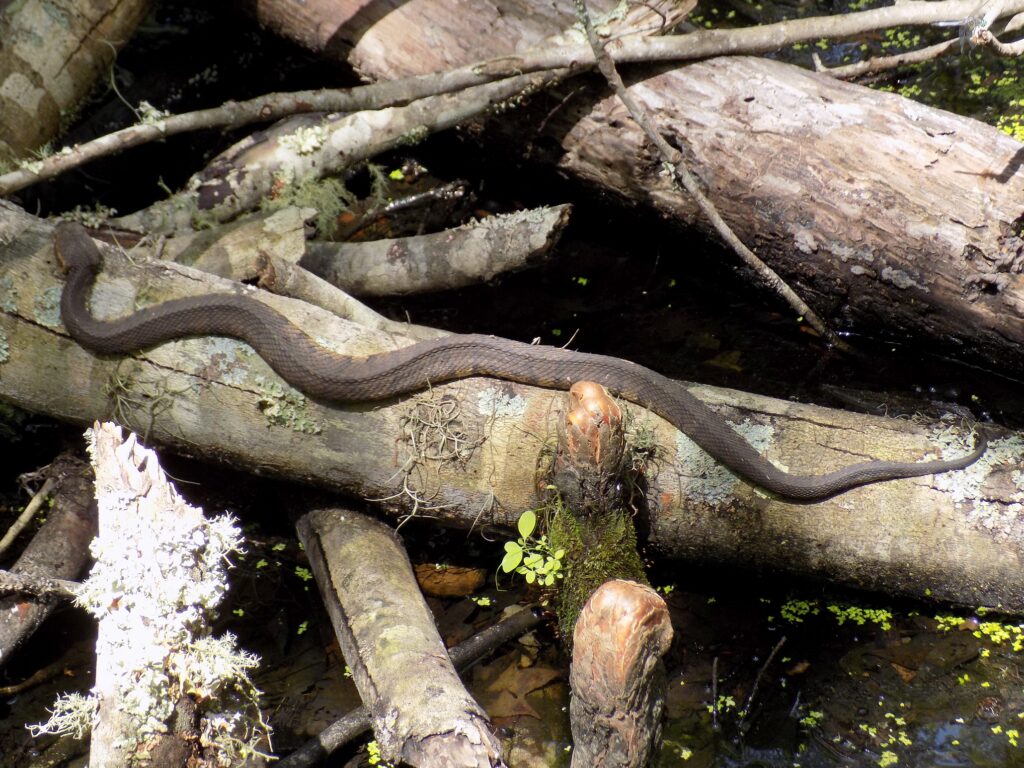


This week for Flora and Fauna Friday is the slithering fear of fishermen, the Cottonmouth (Agkistrodon piscivorous).
The Cottonmouth, or Water Moccasin, is a modestly sized viper at up to three feet long and fairly bulky. Their scales have a corrugated, studded appearance that takes on a deep brown coloration in adults. In contrast, younger snakes show disorganized lighter bands of tan or greenish-brown that contrast their umber scales. Cottonmouths are an aquatic snake prolific in our freshwater rivers, streams, ponds, swamps, ditches, and marshes across the Lowcountry. They’ll also patrol soggy fields and wet meadows in search of a meal. Their favorite foods are fish and frogs but they’ll eat birds and rodents when given the chance. Unlike Copperheads, Cottonmouths will gladly make their presence known when they feel threatened. They’ll coil their bodies to face the trespasser, vibrate their tail, spit a sickening hiss, and throw open their jaws to flash a palate of ghostly white gums. The contrasting blink of white signals their discontent and is usually sufficient to let most mammals know to back off.
A Cottonmouth’s preference in most cases is to remain motionless to avoid detection. If that fails their next course of action is to escape to the nearest body of water. Cottonmouths are clumsy on land but masterful swimmers; if they can swim away they will. Confrontation is used as a last resort when cornered or startled. However, they are not ill equipped for a fight as their bite is venomous and more potent than their coppery cousin. If you encounter a venomous snake in the wild, the best course of action is to leave it well enough alone. The number one cause of envenomation is attempting to move or handle a viper. They’d rather not waste their venom on you to begin with, you’re too big to eat. So to alter an idiom, let coiled snakes lie.